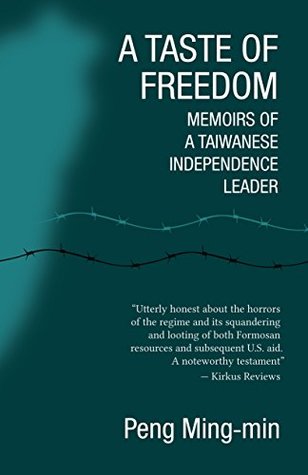Kindle Notes & Highlights
Read between
May 28 - June 24, 2024
The three worlds in which I had lived in the past decades came distinctively and simultaneously into my thoughts: the Chinese world of my ethnic heritage; the Japanese world in which I spent most of my youth, received my early education, and which was once politically dominant over Formosa; and the Western world to which I had been closely linked ideologically and intellectually and to which I was now returning.
it begins only with this shirtless ancestor. He seemed unable to remember or was uninterested in tracing the family lineage back across the strait to China.
my father and mother an opportunity to compare the living conditions of the Chinese in China with conditions in Formosa after thirty-three years of Japanese rule. They were of course impressed by the immensity of China and felt some nostalgia toward the land of their ancestors. However, in terms of social development, industrialization, education, and public health they felt that, compared to Formosa, there was still much to be done in China.
Soldiers, black and white, began coming into the village, and at once the American image changed radically. There was a curious emotional swing to another extreme. The anticipated devils proved to be wonderfully kind and helpful human beings. There was candy for the children, cigarettes for older people, and extraordinary stories of first encounters.
The chill January air poured in through broken windows, the seats had been stripped of green plush that had once covered them, and it was obvious that the cars had not been cleaned for many weeks. This was “Chinese Formosa” and not the Japanese Formosa we had known. We had never seen anything like this dirt and disorder on a public train in our lives. For us, however, nothing could detract from the joy of riding southward again through the beautiful countryside of our island.
Our grandparents had witnessed this transformation from a backward, ill-governed, disorganized island nominally dependent on the Chinese. They did not like the Japanese, but they appreciated the economic and social benefits of fifty years of peace, which they enjoyed while the Chinese on the mainland proper endured fifty years of revolution, warlordism, and civil war.
By holding on to Quemoy and Matsu, and making a show of military action there, the government maintained the fiction of “national emergency” and a “state of war,” thus justifying the suspension of civil rights under continuing martial law. The “emergency” was artificially and indefinitely prolonged in order to curtail Formosan participation in normal constitutional democracy.
The Nationalist government represents neither the people of continental China nor those on Formosa. The Generalissimo’s regime was driven from the continent only two years after the elections of 1947. The Formosans, who constitute eighty-five percent of the population, have less than three percent representation in the national legislature.
By now the inhabitants of Formosa are about as Chinese as Americans or Australians are British.


